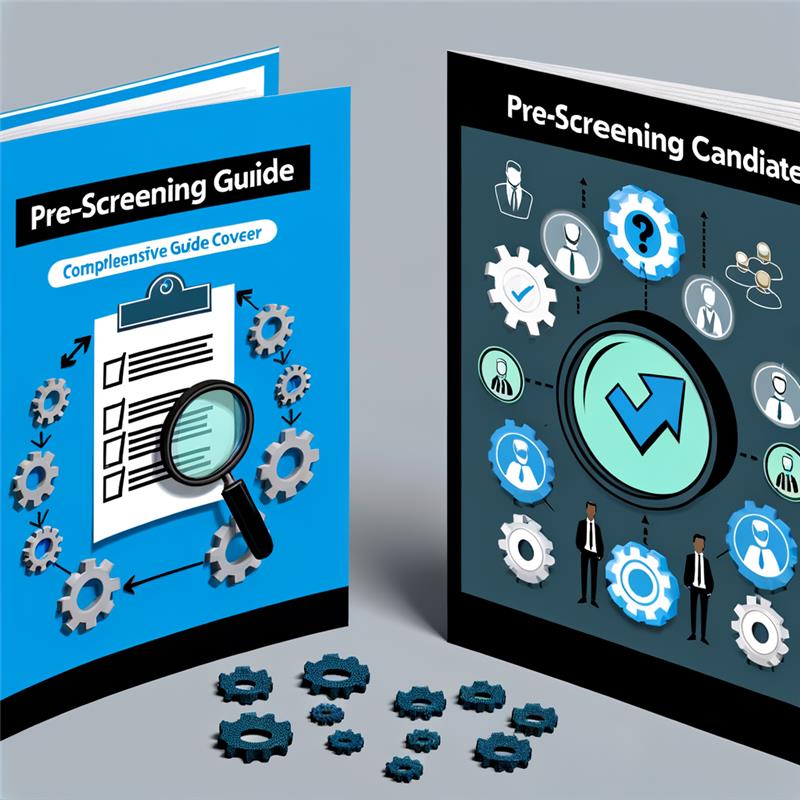Structured interviews are essential in recruitment, offering consistency and fairness by using standardized questions. This method is key to reducing bias, improving candidate assessment, and enhancing overall hiring quality. In this article, we’ll explore the benefits, importance, and best practices for structured interviews, while addressing common challenges.
What Are Structured Interviews?
Structured interviews involve asking each candidate a consistent set of predefined questions, allowing recruiters to make fair, unbiased comparisons. This approach reduces variability in the interview process, ensuring each candidate is assessed on the same criteria.
Benefits of Structured Interviews
- Consistency and Fairness
Every candidate is asked the same questions, promoting fairness and reducing unconscious bias. This makes the interview process transparent, ensuring equitable treatment of all candidates.
- Higher Predictive Validity
Studies show that structured interviews provide higher predictive accuracy for job performance compared to unstructured formats. Their data-driven approach ensures better hiring decisions.
- Efficiency in Screening
A structured approach helps recruiters identify qualified candidates early in the process, saving valuable time and resources.
- Legal Protection
By using standardized questions and scoring systems, structured interviews help protect against legal issues related to discrimination, as they create an objective framework for evaluation.
Challenges of Structured Interviews
While structured interviews provide clear benefits, they can present challenges:
- Perceived Rigidity: Candidates may feel that structured interviews are too formal, limiting open dialogue. It’s important to strike a balance by incorporating conversational elements while maintaining structure.
- Time-Intensive Preparation: Developing job-specific questions and a scoring system requires significant upfront effort, particularly when scaling the process for multiple roles.
Examples of Structured Interview Practices
A well-designed structured interview often includes:
- Behavioral Questions: These focus on past behaviors, asking candidates how they handled specific situations relevant to the job.
Read more: Top Behavioral Interview Questions - Situational Questions: These ask candidates how they would approach hypothetical challenges they might face in the role.
Example: A structured interview for a sales role may ask all candidates, “Describe a time when you exceeded your sales target and how you achieved it,” to assess relevant competencies like goal-orientation and resilience.
How to Implement Structured Interviews
Step 1: Define Job Requirement
Clearly define the job competencies, qualifications, and skills necessary for success in the role.
Step 2: Develop Job-Relevant Questions
Craft a set of standardized questions that align with the competencies required. Using both behavioral and situational questions helps capture a comprehensive assessment of the candidate’s abilities.
Step 3: Create a Scoring System
Develop a consistent scoring system for evaluating candidate responses. Scoring rubrics provide an objective way to compare candidates and ensure fairness.
Importance of Structured Interviews in Recruitment
- Improved Hiring Quality: Structured interviews allow for thorough candidate evaluation by focusing on competencies aligned with job performance. This results in better hiring decisions, reducing turnover rates.
- Reduction in Bias: Standardized questions and evaluation criteria help reduce unconscious bias, promoting diversity and inclusion within organizations.
- Data-Driven Decisions: Structured interviews provide quantifiable data, enabling organizations to continuously refine their hiring processes based on measurable results.
The Role of AI in Structured Interviews
With the increasing integration of technology, AI tools are transforming how structured interviews are conducted. AI-driven platforms help automate the process, ensuring consistency in question delivery and response evaluation. To learn more about how AI can enhance the recruitment process, check out this article on the Benefits of AI in Recruitment.
Best Practices for Structured Interviews
- Customization: Tailor questions to the specific requirements of each job role.
- Training Interviewers: Train interviewers on how to conduct structured interviews effectively and avoid introducing bias.
- Review and Improve: Regularly review and update your structured interview process to ensure it remains relevant and effective based on candidate feedback and hiring outcomes.




